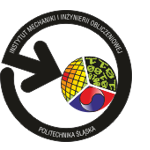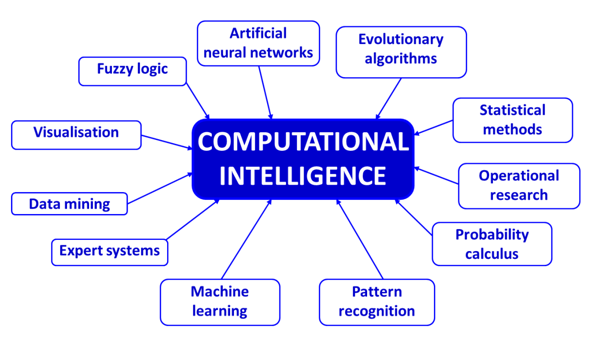 |
Department of Computational Mechanics and Engineering |
 |
Computational intelligence
Field of study: Mechatronics
Programme: Mechatronic systems engineering (ME8)
Semester: II
ECTS credits: 2
Course instructor: dr hab. inż. Witold Beluch
Course description
Searching is one of the basic issues of computer science. Many practical tasks can be regarded as a particular case of the general tasks of searching. Computational intelligence (CI) methods are computational methods dedicated for solving problems for which there are no efficient algorithms. In other words, such methods may be applied if “traditional” methods are ineffective or infeasible. Computational intelligence methods are aimed at finding satisfactory solutions without the full browsing of all the possibilities.
Main features of intelligent system are:
During the course, students will become familiar with the following methods and techniques of computational intelligence:
Teaching modes and hours
Sources
Programme: Mechatronic systems engineering (ME8)
Semester: II
ECTS credits: 2
Course instructor: dr hab. inż. Witold Beluch
Course description
Searching is one of the basic issues of computer science. Many practical tasks can be regarded as a particular case of the general tasks of searching. Computational intelligence (CI) methods are computational methods dedicated for solving problems for which there are no efficient algorithms. In other words, such methods may be applied if “traditional” methods are ineffective or infeasible. Computational intelligence methods are aimed at finding satisfactory solutions without the full browsing of all the possibilities.
Main features of intelligent system are:
- an ability to acquire new knowledge;
- self-adaptation;
- acceptance of incomplete and not fully consistent data;
- creativity.
During the course, students will become familiar with the following methods and techniques of computational intelligence:
- evolutionary algorithms (EA) - inspired by the theory of evolution and genetics;
- artificial neural networks (ANN) - inspired by the functioning of the human nervous system;
- artificial immune systems (AIS) – inspired by the immune system of mammals;
- particle swarm optimizers (PSO) – inspired by the herd behavior of animals;
- fuzzy control systems (based on fuzzy sets and fuzzy logic)
- inspired by human non-precise perception of the world.

Teaching modes and hours
- 15 h lectures
- 15 h labs
Sources
- A. Engelbrecht, Computational Intelligence, An Introduction, Wiley, 2007.
- Z. Michalewicz, D. B. Fogel, How to Solve It: Modern Heuristics, Springer, 2004.
- L. Rutkowski, Methods and techniques of artificial intelligence (in Polish), PWN, 2009.